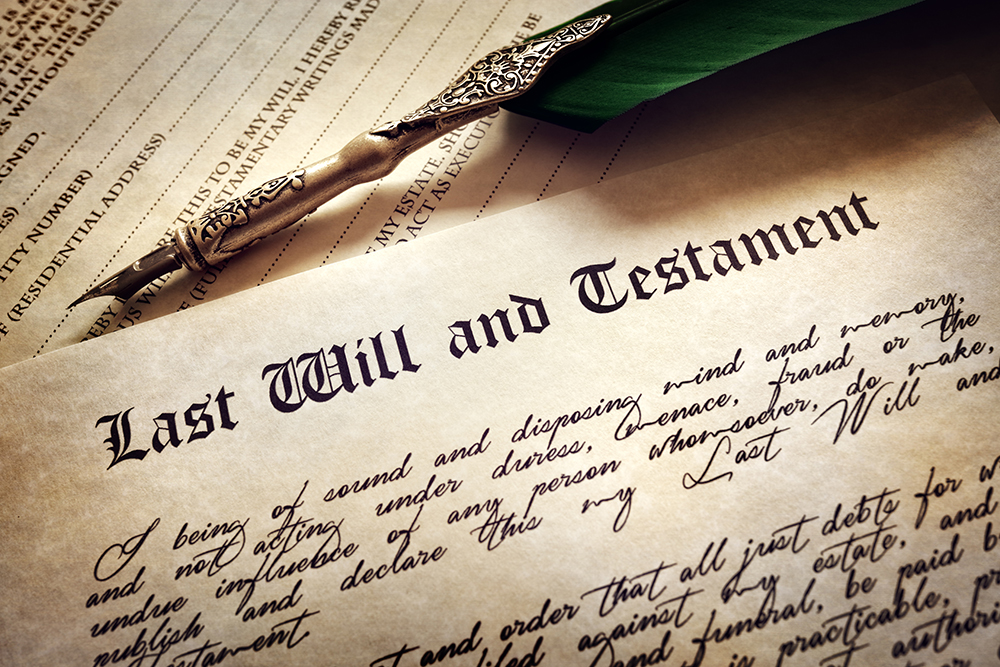Last week, I covered in depth a checklist on creating (or revising) your last will and testament. It’s important to take care of these serious matters sooner rather than later. After all, death can come expectedly or unexpectedly. It’s always smart for you and your loved ones to have a plan in place when there is no added pressure or impending losses. This week I’ll be discussing where to keep your completed will and other critical legal paperwork.
Organization Is Key
To briefly recap, a will is a signed and witnessed document that directs who is to receive your possessions at the time of your death. Possessions can include real estate, bank accounts, trusts, and personal belongings. When the person in question passes away, a personal representative executor is appointed, whose duty it is to ensure the terms of the will are fully carried out.
In all my experience as an attorney in creating estate plans, trusts and wills, I’ve seen it all. Some of the preparations I’ve seen are well-thought-out plans. Most of them need work, and that’s okay. It’s my job to ensure your future is secured and your loved ones are properly directed in the event of your death. Organization on your end is key. Having the documents and a set of instructions on where they are and how to execute them is critical as well. Keep reading!
Options For Safekeeping
Being unable to get a hold of the original copy of your will can end up creating difficulties for your heirs. Being the sole owner of important assets presents a huge legal hurdle for your heirs after your death. Having multiple owners may circumvent these hurdles.
Storing It In-House
Some people do decide to keep their will and papers under their own roof. If that’s the case, consider a fireproof and waterproof safe. A best-case scenario would be to have a large fireproof safe built into the wall or the structure of your home. If that’s not feasible, you can purchase a solid safe and weigh it down or hide a smaller safe in a secure location. Regardless of where you store your will and paperwork, be sure to tell your personal representative and beneficiaries of its location. If it involves a key or a combination to a safe, let your personal representative know where the key or combination is located.
Using A Safe Deposit Box
In my profession, many people believe a safe deposit box is the safest place to store your last will. I would disagree in that there are too many contingencies. Every state has different rules on opening the box upon the owner’s death.
My best advice: if you choose to use a safe deposit box to store your will, make sure your personal representative and beneficiaries know exactly where the safe deposit box is located. I’d even go so far as to bring them along on a walk-through showing them the exact process that will take place upon your death. Make sure you have someone else’s name on the box, not just power of attorney, because that ends when you die.
The County Clerk’s Office
Depending on the state and county in which you live, the county clerk’s office may store the original copy of your will for a small fee. Your executor and heirs may not know this is an option so be sure to tell them before you pass.
Leaving It With Your Attorney
Some of my clients have asked me to hold their wills for them, which is also a viable option. This option works if you 1) plan on keeping the same attorney until your death and 2) your attorney will remain an attorney until your death. This next part goes without saying, but I will add it in any way. Your personal representative and heirs need to be made aware of who your attorney is. Share his or her contact information with your family members as well. If feasible, schedule a meet-and-greet for the family members who need to know.
Keep in mind, even if you don’t keep your will with your attorney, he or she may keep signed copies of the original as backups, especially if they helped to create the documents. In some situations, a copy of the original will may be admitted to the probate court if the original will is lost.
Do’s And Don’t’s
- DO have a binder with everything in one place. This will act as your master copy binder.
- DO make and give signed official copies of the same documents to your spouse and beneficiaries, just in case.
- DON’T keep everything in a home safe or safe deposit box UNLESS other people have access.
- DO consider keeping everything in a fireproof safe or fireproof file box in a secure part of your home.
- DO provide access to your assets (bank accounts, safe deposit boxes, etc.) upon your death.
For questions regarding any of the topics discussed in this blog, please contact me directly at [email protected].
Thank you for reading,
Suzanne Poitras


Recent Comments